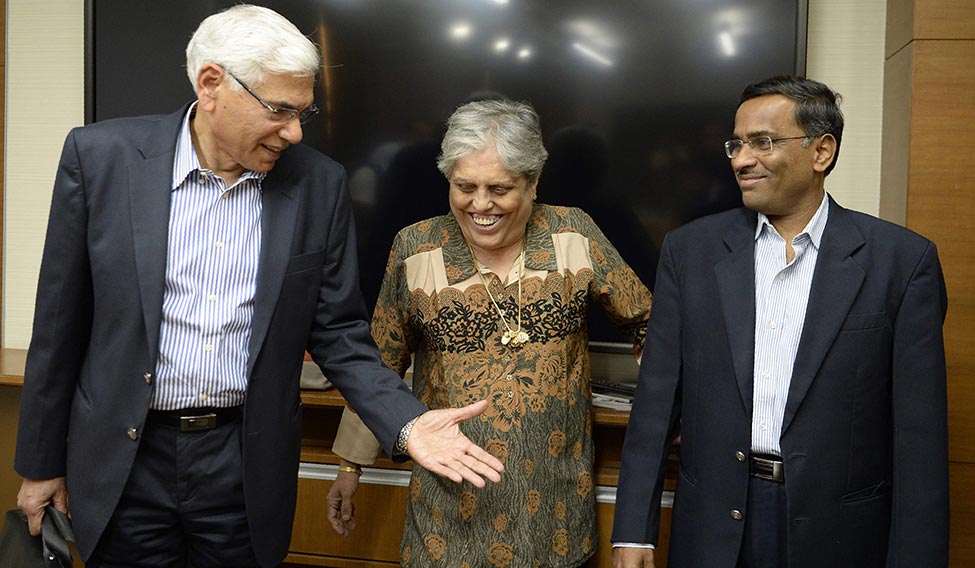Vinod Rai landed in Mumbai within hours of the Supreme Court appointing him as chairman of the four-member committee of administrators tasked with running the Board of Control for Cricket in India. On January 31, the former comptroller and auditor general met two of his colleagues in the committee—Vikram Limaye, CEO and managing director of IDFC Ltd, and Diana Edulji , former captain of the Indian women’s cricket team. The fourth member of the committee, historian Ramachandra Guha, was in Kerala. He joined the trio through videoconference as they met in Limaye’s office.
BCCI treasurer Anirudh Chaudhry and CEO Rahul Johri briefed them on the forthcoming meeting of the International Cricket Council in Dubai and its significance to the BCCI. Rai, apparently, got down to business straightaway. “The reputation of each member is on the line,” said a source who witnessed the committee in action. “Each one is therefore determined to ensure that the Supreme Court’s orders are carried out.”
Rai has described his role as that of a nightwatchman. “We need to put in place good governance structures to ensure a smooth transition to an elected body, which will bring about good administration in the BCCI,” he said.
Edulji said she was happy that a woman cricketer was made part of the committee. “It’s such an important juncture in Indian cricket; a representative of woman cricketers had to be there,” she said. Forming a players’ association, she said, was a top priority.
Guha was present when the committee met again in Delhi the following day. The meeting went on for more than seven hours. Up for discussion there was the biggest challenge it faced—organising the tenth season of the Indian Premier League. A BCCI official who was removed by the court said a failure by the committee “to organise the high-profile league will be the best way for the world to realise that cricket in India is best left to veteran officials”.
The committee is aware of the challenge. “We are very determined to ensure that things run smoothly,” said a member. “That is why IPL is a top priority. We are aware that many in the BCCI would rather not have us organise it.”
The committee encountered the first ‘speed breaker’ on January 30 itself—in the form of Amitabh Choudhary, BCCI joint secretary and chief of the Jharkhand Cricket Association. Choudhary had flown into Delhi to convene a meeting of the senior selection committee to pick the squad for the Test between India and Bangladesh in Hyderabad on February 9. But Rai advised him to let Johri convene the meeting. An angry Choudhary argued that he was eligible to do it, but Rai stood firm. The meeting was finally convened by Johri via videoconference after a delay of six hours.
The tussle arose from the ambiguity in the Supreme Court order regarding the eligibility criteria for BCCI officials. The court, in its order on January 2, had held that a person “who has been an office-bearer of the BCCI or a state association for a cumulative period of nine years” was ineligible to continue. This has become open to interpretation. Gopal Subramanium, the amicus curiae in the case, interprets it as nine years either in state associations or in the BCCI, while BCCI lawyers say it allows an official a total of 18 years (nine each in the BCCI and state associations).
Choudhary, who falls in the latter category, has argued in court that he is eligible to continue in the BCCI. But it does not help him that Justice Dipak Misra, who heads the bench handling the case, has observed that any official who contravenes the eligibility criteria “would do so at their own peril”.







